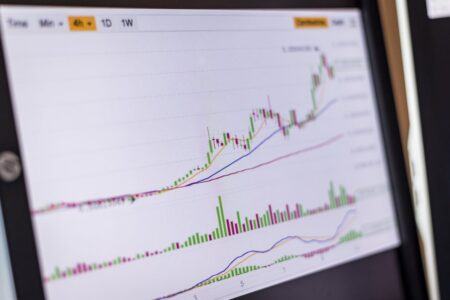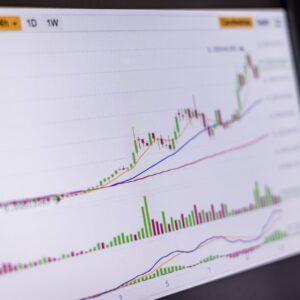In a recent detailed post on social media platform XMarc van der Chijs, a renowned entrepreneur and venture capitalist, shared his increasingly bullish perspective on Bitcoin, foreseeing a potential supercycle in the cryptocurrency market.
He co-founded Tudou.com, one of China’s largest video-sharing websites, which later merged with Youku.com to form one of the country’s most prominent online video companies, Youku Tudou Inc., which was eventually acquired by Alibaba.
After his success with Tudou, van der Chijs became increasingly involved in the cryptocurrency and blockchain space. He has been an early investor in cryptocurrencies and blockchain technology, recognizing the potential of these technologies early on. Van der Chijs is involved in various blockchain projects and companies, often in a founder or investor capacity, contributing to the development and adoption of blockchain technology and cryptocurrencies.
Besides his involvement in the tech and blockchain sectors, Marc van der Chijs has participated in various ventures and serves as an advisor to startups, leveraging his extensive experience in entrepreneurship, investment, and the digital economy to support emerging businesses. His career is marked by a keen interest in innovative technologies and a belief in the transformative power of blockchain and digital currencies.
According to van der Chijs, the current momentum surrounding Bitcoin is unlike anything previously witnessed. With the cryptocurrency nearing an all-time high and boasting a 60% increase in value within a single month, he points out the remarkable aspect of this surge: it has occurred without the typical hype. This observation by van der Chijs underscores a unique market phase, suggesting we may be at the precipice of a supercycle driven by sustained inflows of new investment into spot Bitcoin ETFs.
Van der Chijs cites several compelling reasons for his supercycle theory. Firstly, he notes the recent trend of funds announcing allocations to Bitcoin ETFs, with Blackrock’s Strategic Income Opportunities Fund being a notable example from this morning. This move, he argues, signifies a consistent flow of new money into Bitcoin ETFs, setting the stage for a sustained bull market. Van der Chijs’s emphasis on this point highlights the growing institutional acceptance of Bitcoin as a legitimate asset class.
Furthermore, van der Chijs observes that investments into Bitcoin ETFs are not only continuing but increasing. He references the record-breaking success of the Bitcoin ETF launch, which stands as the most successful in history. This trend is significant as it reflects growing investor confidence and interest in cryptocurrency as a mainstream investment vehicle.
The anticipated participation of financial advisors in the ETF market represents another catalyst for the Bitcoin supercycle, according to van der Chijs. With most advisors currently unable to allocate to ETFs, the upcoming shift that will allow them to do so could unleash a substantial influx of investment, propelling Bitcoin’s value further.
Van der Chijs also points to Microstrategy’s aggressive Bitcoin acquisition strategy, leveraging its high-performing stock to buy more Bitcoin, suggesting that such bold moves by corporations could inspire others to follow suit. He believes this could lead to a domino effect, where Bitcoin’s acceptance and integration into corporate strategies become commonplace, further fueling the cryptocurrency’s ascendancy.
He mentions a mysterious wallet accumulating an average of 100 BTC per day since November 2023, now holding over 50,000 BTC, adds to the intrigue and bullish sentiment surrounding Bitcoin. Speculation about the identity of the wallet’s owner, potentially a billionaire like Jeff Bezos, signifies the growing interest of ultra-high-net-worth individuals in Bitcoin. Van der Chijs believes this trend will continue, with more billionaires likely to diversify into Bitcoin, amplifying its legitimacy and value.
The potential for nation-states to begin purchasing Bitcoin in meaningful quantities is another factor van der Chijs considers pivotal. With countries like El Salvador making modest purchases, the shift to significant acquisitions by nation-states could redefine global economic leadership, especially if the fiat system faces challenges.
Retail investors, still largely on the sidelines, represent a vast untapped market that could be mobilized by reaching new all-time highs and the ensuing media coverage, according to van der Chijs. He predicts a new phase of FOMO (fear of missing out) that could draw substantial funds away from traditional asset classes into Bitcoin, especially if a supercycle takes hold.
Van der Chijs elaborates on the self-fulfilling nature of a Bitcoin supercycle, propelled by continuous investment inflows and the increasing discourse around it, attracting more institutional investors. Although he cautiously assigns a 10% chance to this scenario materializing, he acknowledges this probability is gradually increasing.
Should this supercycle unfold as van der Chijs speculates, the implications could be profound, potentially disrupting the current world order by diverting wealth from traditional markets into Bitcoin. He believes this shift could create unparalleled wealth, redefining what it means to be a billionaire or even a trillionaire, and reshaping the corporate and geopolitical landscape in favor of early adopters like Microstrategy and forward-thinking nations such as the UAE and Singapore.








